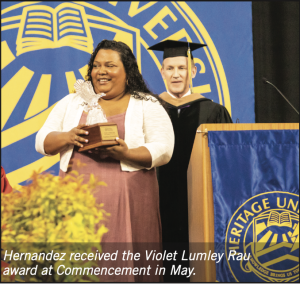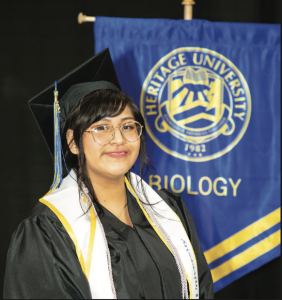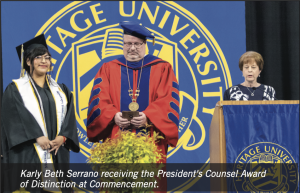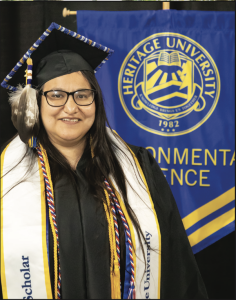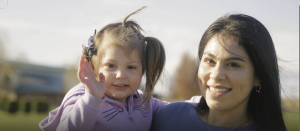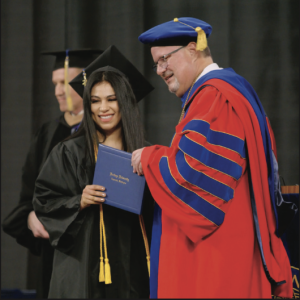FOR IMMEDIATE RELEASE
Heritage University to commemorate 40th anniversary with
Eagle Giving Day and Homecoming Event
Toppenish, Wash. – Heritage University is marking its 40th year of providing higher education opportunities to Yakima Valley residents with two events. The first is Eagle Giving Day, a day set aside to raise funds for student scholarships. The second is Homecoming 2022, an event to reunite alumni, faculty and staff past and present and current students.
Eagle Giving Day is scheduled for Friday, September 9, 2022. Friends and alumni are encouraged to help Heritage University continue its mission of making a college education accessible to anyone with the talent and drive to pursue a degree. “As we look back at our 40-year history, one thing is clear. It is our generous donors who have made it possible for more than 10,000 students to graduate and go on to meaningful careers,” said Heritage University president Andrew Sund, Ph.D. “Gifts received on ‘Eagle Giving Day’ will ensure that future generations of Eagles have the same level of support by providing funding for scholarships, programs, internships, technology upgrades and more.”
Heritage University alumni have an exceptional reason to give back to their alma mater on Eagle Giving Day. An anonymous alumni donor has agreed to match every $40 gift from alumni up to the first $5,000, which means that $40 gift instantly becomes $80 for student scholarships. Their generosity will help make it possible for students to achieve their dreams like they did. HU alumna Adriana Villafan, who graduated in 2015 with her B.A. degree in business administration with a concentration in Human Resources, and is now the director of the TRIO program at Heritage. Villafan said she plans to participate in Eagle Giving Day. “Scholarships and mentoring are part of the support I received when I was a student at Heritage,” Villafan said. “Heritage helped me get to where I am today, and now that I am in a position to give back, ‘Eagle Giving Day’ is the perfect opportunity for me and other alumni to return the favor.”
The giving doesn’t need to wait until Eagle Giving Day. Each gift received before September 9 will count towards the day’s final total. For more information on Eagle Giving Day and to make a gift online, please visit heritage.edu/eaglegivingday.
Homecoming 2022 will be held on the Heritage University campus on September 9 from 4:00 p.m. to 7:00 p.m. It is open to Heritage alumni and current students as well as current and former faculty and staff and friends of the university. People are encouraged to RSVP at heritage.edu/homecoming.
For more information, please contact Davidson Mance, media relations coordinator at (509) 969-6084 or mance_d@heritage.edu.
# # #
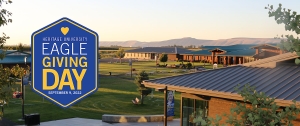
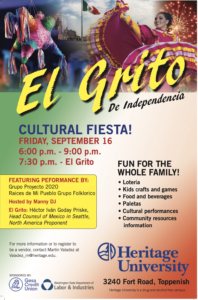


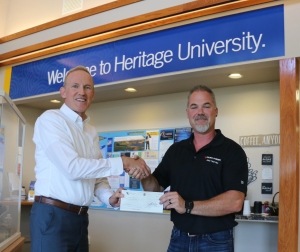

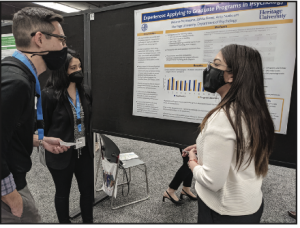
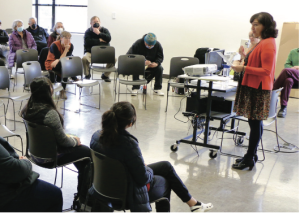
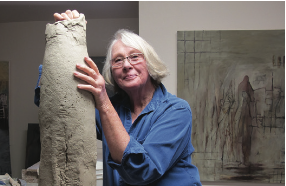
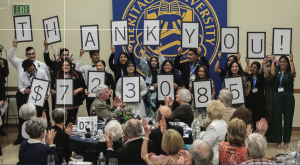
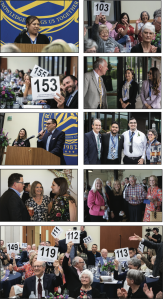
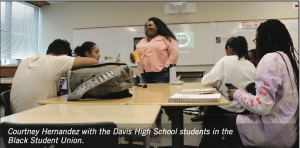
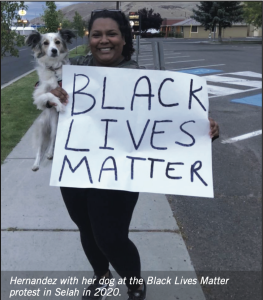 “I was really struggling. George Floyd’s death was just one of many in a string of deaths where a black person was killed. I saw so many people around me just going on with their lives as if their deaths didn’t matter. It was like they were saying, ‘it doesn’t affect my life in any way, so who cares,’” she said. “Then I saw all the protests and the candlelight vigils and the rallies in other parts of the country, and I wanted to be a part of that.”
“I was really struggling. George Floyd’s death was just one of many in a string of deaths where a black person was killed. I saw so many people around me just going on with their lives as if their deaths didn’t matter. It was like they were saying, ‘it doesn’t affect my life in any way, so who cares,’” she said. “Then I saw all the protests and the candlelight vigils and the rallies in other parts of the country, and I wanted to be a part of that.”